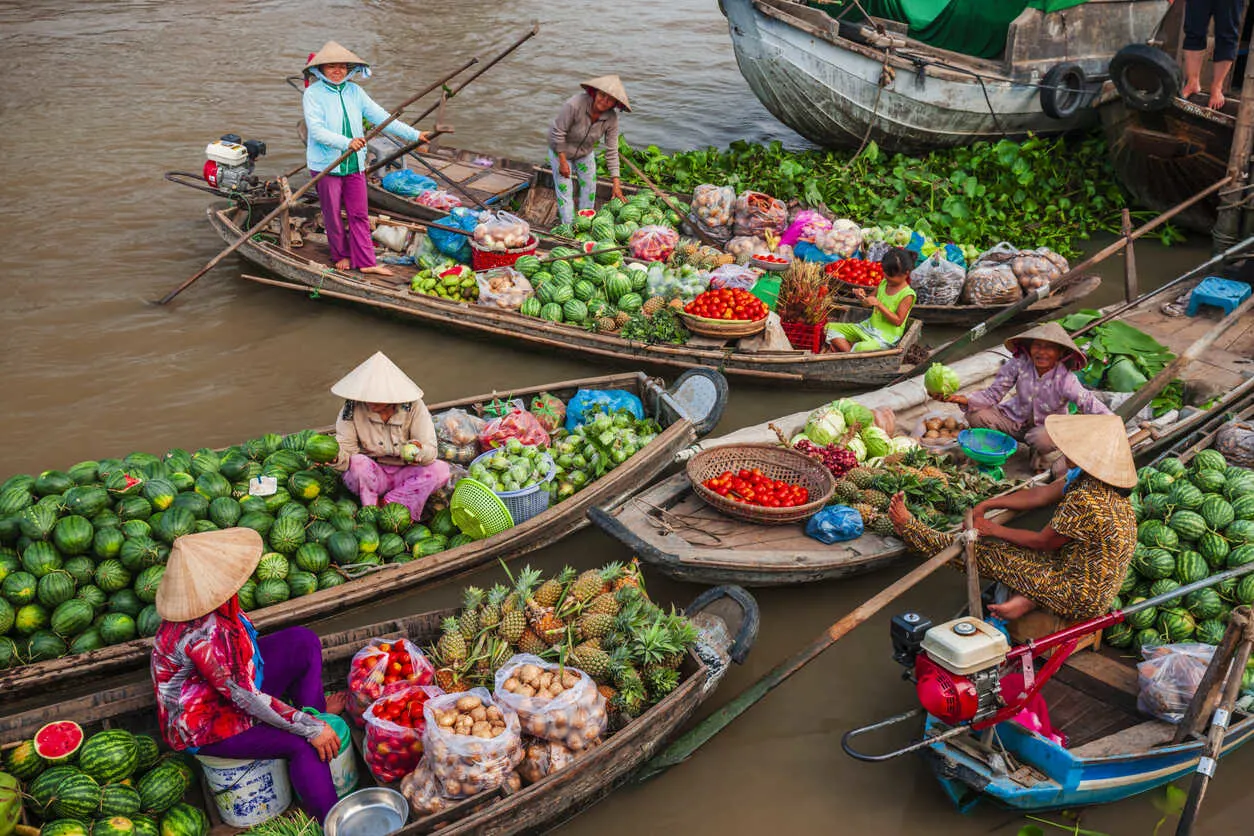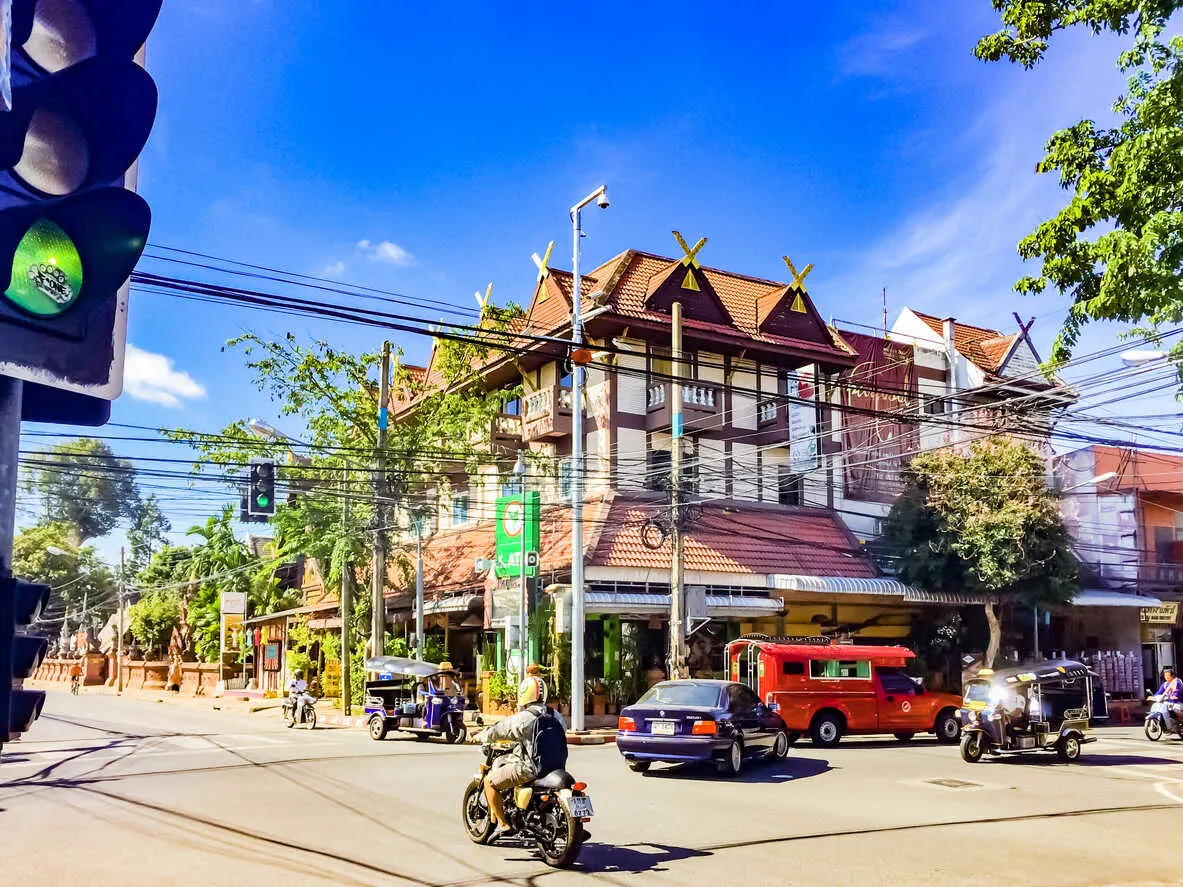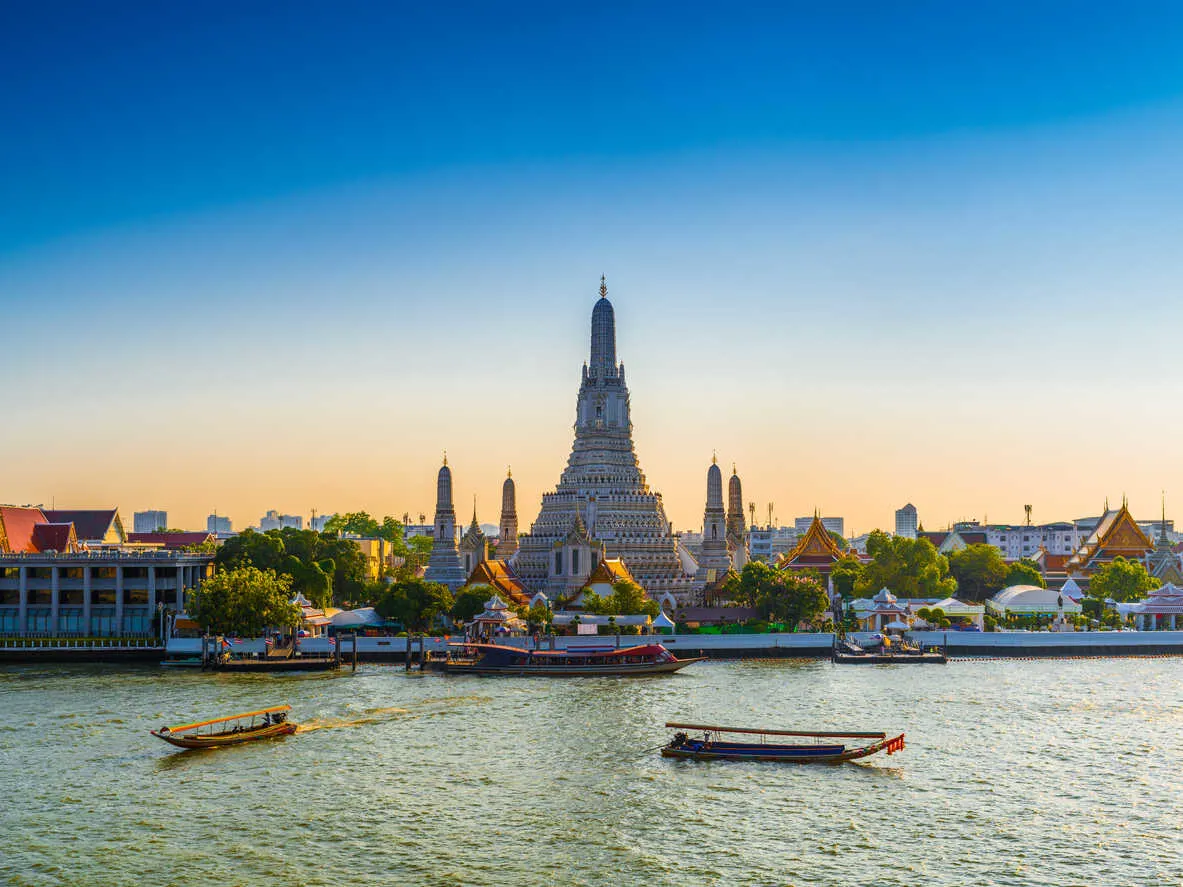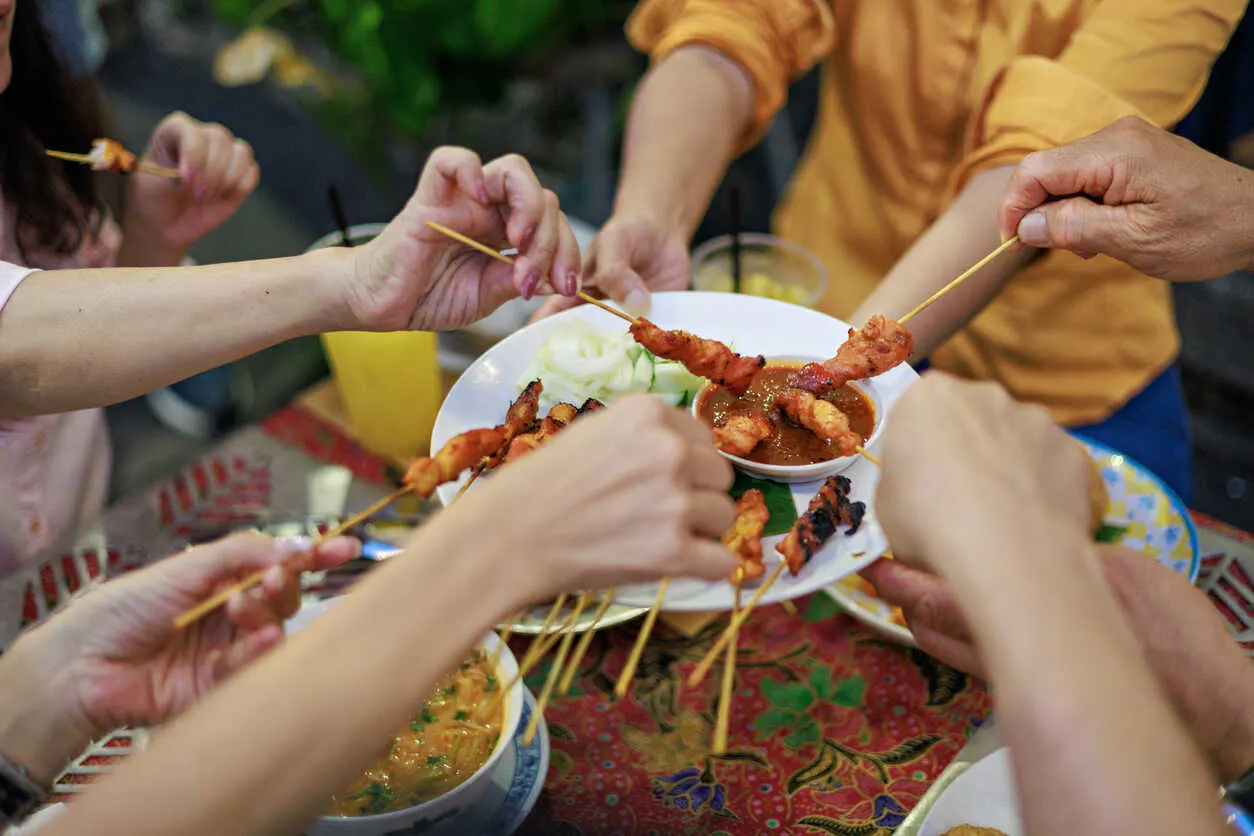Choosing where to move overseas can feel like shopping for a new planet—too many options, too many opinions, and no universal “best” pick. Everyone’s priorities are different: some want safety, others want adventure, and a few just want affordable cocktails on the beach. The trick is whittling down the list to something manageable, then comparing countries by the stuff that actually matters to you.
In my case, the first cut was easy: I hate being cold. If a place requires more than a light sweater, it’s out. To simplify the search, I Googled countries that grow pineapples—because pineapples and I share the same survival needs: tropical weather, sunshine, and absolutely no frost.
That little fruit-based hack pointed me straight to Central America, South America, and Southeast Asia. Since I grew up in Florida (basically Latin America with Disney), I decided to head in the opposite direction and zeroed in on Southeast Asia. That left me with five contenders: Thailand, Vietnam, Cambodia, Malaysia, and the Philippines.
To keep things scientific (and delicious), I scored each country in eight categories using a simple system: one pineapple for “meh” and five pineapples for “paradise.”
Behold: my very own Southeast Asia Pineapple Index.
The World’s Best Retirement Havens for 2026
The World’s Best Retirement Havens for 2026
24 Countries Compared, Contrasted, Ranked, and Rated. You don’t have to be rich to enjoy a pampered retirement, you just need to know where to go. With our 35th Annual Global Retirement Index, our experts hand you a detailed roadmap. Details—and a Special Offer—Here

By submitting your email address, you will receive a free subscription to IL Postcards, The Untourist Daily and special offers from International Living and our affiliates. You can unsubscribe at any time, and we encourage you to read more about our Privacy Policy.
Cost of Living / Standard of Living

Every country in Southeast Asia is cheaper than North America—unless you’re counting Singapore, which seems to be priced in a parallel universe. But cheap doesn’t always mean cheerful. The cost of living is only half the story; the standard of living is what tells you whether your budget stretches into comfort or just survival.
Cambodia is rock-bottom cheap, but it comes with a “third world” price tag in terms of infrastructure and services. There are some luxurious expat bubbles in Phnom Penh, but for the most part, the lifestyle in the Kingdom of Wonder is pretty “meh”. The Philippines is a shade cheaper than Thailand, but housing and healthy food options lag far behind. Once again, larger cities have some fancy expat enclaves, but the average standard of living can’t compete with more developed neighbors.
Thailand easily outperforms most of its ASEAN neighbors, offering a wide variety of housing and lifestyles to suit any budget. Infrastructure and services are of first-world standards and continually improving. From a skyscraper penthouse in bustling Bangkok to a cozy beach bungalow on one of its 1,430 islands, expats in Thailand are spoiled for choice.
The real surprise? Vietnam. I lived in a beachside condo in Da Nang for three months, spending about 30% less than I would in Thailand. Sure, the lifestyle isn’t quite as cushy, but the bang for your buck is undeniable. What’s more, most larger cities and well-established tourism destinations offer affordable middle-class lifestyles.
Malaysia, meanwhile, is like buying champagne at beer prices: modern infrastructure, first-world comforts, and rent that’s half of what you’d pay in the U.S.—and about 15% less than in Thailand. Both Malaysia and Vietnam earn a juicy five pineapples for overall value.
Your chance to retire overseas now
Your chance to retire overseas now
Learn more about Thailand and other destinations by signing up to our daily IL Postcards e-letter and we'll immediately send you a free report: 20 Countries Compared, Contrasted, Ranked, and Rated.
You don’t have to be rich to enjoy a pampered retirement, you just need to know where to go.
With our 34th Annual Global Retirement Index, our experts hand you a detailed roadmap. Details and a Special Offer Here!

By submitting your email address, you will receive a free subscription to IL Postcards, The Untourist Daily and special offers from International Living and our affiliates. You can unsubscribe at any time, and we encourage you to read more about our Privacy Policy.
Safety

Coming from Florida—a place with more guns than alligators and weather that wants you dead—I find Southeast Asia downright relaxing. Thailand is secure in terms of crime, but loses a pineapple thanks to its kamikaze motorbike culture. Traffic mortality in the Land of Smiles is among the worst in the world, so buckle up and wear a helmet.
Cambodia and Vietnam get dinged for the same reason: the roads can be as lawless as a Wild West movie set. Shoddy construction and a laissez-faire attitude toward fire safety contribute to the risk of living anywhere above the ground floor in parts of both these countries.
The Philippines? Friendly, but deceptive. Petty theft, violent crime, and the occasional terrorist threat in the south keep expats on edge. Staying safe there is less about bodyguards and more about common sense. Situational awareness is a required skill for survival in the Philippines. Be careful who you trust.
Malaysia, however, takes the safety crown. Violent crime is rare, roads are in better condition, and the overall vibe is calm—a pineapple jackpot.
Healthcare

Cambodia surprised me with a top-notch hospital in Phnom Penh, although the quality drops significantly outside the capital. Most expats in Cambodia will say the private hospitals in Phnom Penh are good, but if you need a serious operation or specialized therapy, fly over to Bangkok. The Philippines is similar—big cities like Manila or Cebu offer solid healthcare, but provincial options are patchy. Vietnam gets mixed reviews, even in its private hospitals in Ho Chi Minh City and Hanoi.
Thailand and Malaysia, however, are in a different league. Both countries are hubs for medical tourism, boasting sparkling hospitals, internationally trained doctors, and bills that are about one-third of what you’d pay back home. Whether you need a dental cleaning or a new hip, these two rack up a whole cart of pineapples.
Visas, Property, and Other Administrative Hassles
Cambodia makes living, working, and staying there laughably easy: arrive in the morning, set up a business by afternoon, and remain indefinitely with little fuss. The Philippines is also welcoming, particularly to Americans, though you’ll need a bit more paperwork and cash. Malaysia’s options are plentiful, but pricier—MM2H (Malaysia My Second Home) is a solid deal if you’re planning for the long term.
Thailand’s visa rules are a moving target, but a steady income usually keeps the immigration gods happy. Work permits, however, are a bureaucratic nightmare. Vietnam ranks lowest here, forcing foreigners into the dreaded “visa run” every 90 days, with no guarantee of renewal and no retirement visa on the horizon.
Property rules vary widely: condo ownership is available to foreigners in Thailand, Cambodia, the Philippines, and Malaysia. Houses and land can be owned through a number of different programs as well. Vietnam, however, makes property ownership feel like a legal booby trap—expect red tape, taxes, and vague guarantees.
Culture (Language / Religion / Friendliness)
The Philippines scoops up all the pineapples here. English is the official language, Catholicism is the mainstream religion, and the people? Possibly the friendliest, most karaoke-loving crowd on the planet. Their culture is a delicious cocktail of influences—my best attempt to sum it up: “The Philippines is like many places, but no place is quite like the Philippines.”
Vietnam falls behind with an undecipherable language and locals who are polite but not exactly warm. Cambodia faces its own hurdles—an intricate language, deep cultural scars, and a stark wealth divide.
Thailand, meanwhile, strikes a balance between friendliness and cultural richness better than almost anyone. The smiles are genuine, the traditions are fascinating, but the language is tough enough to keep it from a perfect score. Malaysia? Friendly enough, but in a Muslim-majority society, social circles can feel more like expat enclaves than true integration.
Choice of Communities

Malaysia and Cambodia keep things simple, offering just a handful of solid expat bases. Kuala Lumpur is polished and efficient; Penang is charming and livable. Langkawi might be a good sand-and-sea choice. Cambodia’s choices are Phnom Penh (chaotic), Siem Reap (laid-back), and Sihanoukville (an area trying to reinvent itself).
The Philippines, with its 7,000-plus islands, is a buffet of lifestyles. Manila’s Makati for the city set, Puerto Galera for snorkelers, Boracay for castaways, Palawan for dreamers. Something for everyone—assuming you don’t mind island-hopping.
Vietnam has fewer choices, but what it does have is strong: the beaches of Da Nang, Hanoi’s old-world vibe, and Dalat’s misty coffee highlands. And, if you have your heart set on living in a big, sweaty Asian city, Ho Chi Minh City should put a smile on your face.
Thailand, of course, outshines them all with Bangkok’s big-city buzz, idyllic islands like Phuket and Koh Samui, Chiang Mai’s mountain charm, and frenetic Pattaya’s Las Vegas-by-the-sea vibe. Many expats come to Thailand and change from one venue to another as they age and mellow.
Transportation
The Philippines faces a significant challenge: connecting its 7,000 islands is a daunting task. The development of much-needed regional airports has not kept up with demand. Manila’s lack of public transport ensures hours in traffic unless you stick to the expat bubble. One spine-crushing ride in a “trike” will illustrate why the Philippines only gets one pineapple in this category.
Thailand, on the other hand, is a masterclass in improvisation. Bangkok’s Skytrain and Subway are sleek, the islands run on “baht buses,” and tuk-tuks, motorbike taxis, and ride-hailing apps fill in the gaps. With 11 international airports (including Bangkok’s Suvarnabhumi, ranked among the world’s best), Thailand makes getting around a breeze.
Cambodia and Vietnam are still catching up. Both rely on tuk-tuks and motorbikes in the cities, with chaotic traffic that could star in its own survival game. Big-ticket international airports are on the way, but for now, please be patient.
Malaysia excels in this area, boasting modern public transportation, great ride-hailing apps, efficient airports, and excellent highways. Be aware that traffic accidents are frequent and often severe, so drive defensively and keep your seatbelt snug.
YOUR CHANCE TO RETIRE OVERSEAS NOW
YOUR CHANCE TO RETIRE OVERSEAS NOW
Sign up for our free daily IL Postcards e-letter and we'll immediately send you a free report on the WORLD'S #1 RETIREMENT HAVEN—plus 9 more of the most desirable and very affordable destinations where you can upgrade your retirement right now. Each day you'll learn about the best places to retire, travel, buy real estate and enjoy life overseas.

By submitting your email address, you will receive a free subscription to IL Postcards, The Untourist Daily and special offers from International Living and our affiliates. You can unsubscribe at any time, and we encourage you to read more about our Privacy Policy.
Food

This one’s personal. After 25 years in Thailand, I’ve developed a lifelong love affair with its cuisine—whether it’s chicken skewers from a motorbike cart or a royal banquet by the Chao Phraya. Thai food is complex, creative, and absolutely addictive.
Cambodian food feels like a watered-down cousin of Thai, but perfect for those who can’t take the super-spicy stuff. Vietnam, however, offers a very palatable cuisine, with fresh noodles, rice dishes, and the genius of French fusion—banh mi is proof that baguettes and chili paste were destined to meet.
The Philippines, I’m afraid, gets the wooden spoon. The food is heavy, often sugary, and vinegary, usually accompanied by rice that could be described as a thick paste. Their saving grace is lechon (whole roast pig) and the fact that every fast-food brand on earth has opened a branch there.
And then there’s Malaysia, which wins the crown. Malay, Chinese, and Indian cuisines converge in a sensory explosion, with Penang at the heart of the flavors. I’d move there for the food alone—no joke.
| Category | Cambodia | Malaysia | Philippines | Thailand | Vietnam |
| Cost of Living | 🍍🍍🍍🍍🍍 | 🍍🍍🍍🍍 | 🍍🍍🍍 | 🍍🍍🍍🍍 | 🍍🍍🍍🍍🍍 |
| Standard of Living | 🍍🍍 | 🍍🍍🍍🍍🍍 | 🍍🍍🍍 | 🍍🍍🍍🍍🍍 | 🍍🍍🍍🍍 |
| Safety | 🍍🍍🍍🍍 | 🍍🍍🍍🍍🍍 | 🍍🍍 | 🍍🍍🍍🍍 | 🍍🍍🍍🍍 |
| Healthcare | 🍍🍍🍍 | 🍍🍍🍍🍍🍍 | 🍍🍍🍍 | 🍍🍍🍍🍍🍍 | 🍍🍍🍍 |
| Visas and Other Administrative Hassles | 🍍🍍🍍🍍🍍 | 🍍🍍🍍 | 🍍🍍🍍🍍🍍 | 🍍🍍🍍 | 🍍 |
| Culture | 🍍🍍🍍🍍 | 🍍🍍 | 🍍🍍🍍🍍🍍 | 🍍🍍🍍🍍 | 🍍 |
| Choice/Variety of Locations | 🍍🍍 | 🍍🍍 | 🍍🍍🍍🍍🍍 | 🍍🍍🍍🍍 | 🍍🍍🍍 |
| Transportation | 🍍🍍🍍 | 🍍🍍🍍🍍 | 🍍 | 🍍🍍🍍🍍🍍 | 🍍🍍🍍 |
| Food | 🍍🍍 | 🍍🍍🍍🍍🍍 | 🍍 | 🍍🍍🍍🍍🍍 | 🍍🍍🍍🍍 |
| 30 | 35 | 28 | 39 | 28 |
How to Apply the Index
Now that we’ve counted up the pineapples, it's time to figure out which place is for you. Organize your priorities and see which countries score the highest.
If you’re a person or couple primarily concerned with a low cost of living, then Cambodia and Vietnam offer the best solutions, as well as relatively safe environments.
Thailand and Malaysia offer the most value for your expat dollars - first-world lifestyles for half the price. These two countries are also the best choice for older expats who value quality healthcare and personal safety.
The Philippines is an excellent choice for expats seeking a sense of adventure, friendly locals, and hassle-free living. There’s a lot to explore - just don’t go there for the food.
And there you have it: The Pineapple Index—a foolproof, fruity way to measure your personal paradise.
The World’s Best Retirement Havens for 2026
The World’s Best Retirement Havens for 2026
24 Countries Compared, Contrasted, Ranked, and Rated. You don’t have to be rich to enjoy a pampered retirement, you just need to know where to go. With our 35th Annual Global Retirement Index, our experts hand you a detailed roadmap. Details—and a Special Offer—Here

By submitting your email address, you will receive a free subscription to IL Postcards, The Untourist Daily and special offers from International Living and our affiliates. You can unsubscribe at any time, and we encourage you to read more about our Privacy Policy.
